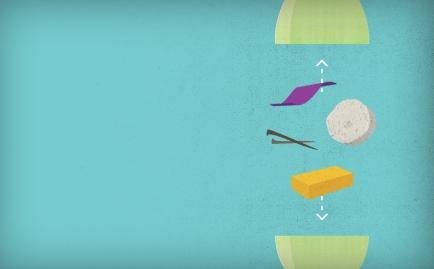
The other day I stood in an unusually slow line at my local coffee house. As I stood waiting, I watched the people in line with me—hands on hips, pursed lips, rolling eyes, a too-frequent glance at the watch—their body language said it all.
We live in a day of fast everything, where waiting for anything seems like a major inconvenience. I don’t want to stand in line for my favorite cup of coffee, or endlessly flip though magazines at the doctor’s office or sit parked in traffic. And if I can just be honest with you, I don’t want to wait on God either.
Renowned theologian Lewis Smedes described waiting like this: “Waiting is our destiny. As creatures who cannot by themselves bring about what they hope for, we wait in the darkness for a flame we cannot light. We wait in fear for a happy ending that we cannot write. We wait for a ‘not yet’ that feels like a ‘not ever.’”
This is what we often see in the anatomy of hope. An event takes place that sucks the life out of you: a relationship ends, a job dissipates, a dream dies. You’re left there standing, waiting, paralyzed by hopelessness. You start to wonder if God forgot His promises. If God knows what you’re going through. If God even cares.
In chapter 23, Luke describes the scene of Jesus’ death. The land became dark, the temple tore in two and an army officer praised God, saying, “Surely this was a good man!” Throughout, His followers watched. Luke 23:48-49 says: “When all the people who had gathered there to watch saw what happened, they returned home, beating their chests because they were so sad. But those who were close friends of Jesus, including the women who had followed him from Galilee, stood at a distance and watched” (NCV).
Have you ever been so hopeless you couldn’t do a thing? You couldn’t get mad, or fight or even cry? I believe this is the emotional state of Jesus’ followers. Nothing seems to be happening. They feel hopeless. They feel completely alone.
We know the end of this story. We know God was doing His best work yet. But there was a waiting period.
Jesus was crucified on Friday. But the paralyzing hopelessness the disciples experienced continued to intensify as they lived into Saturday.
We don’t typically talk a lot about Saturday in church. We spend plenty of time on Good Friday, which of course we should. Friday is the day redemption happened through the shedding of Christ’s blood. Friday is a very important day.
Nobody would argue that we shouldn’t celebrate Easter Sunday. Jesus conquered death so we can have life. It doesn’t get any better than Easter Sunday.
But what about Saturday? It seems like a day when nothing is happening. In reality, it’s a day full of questioning, doubting, wondering and definitely waiting. It’s a day when we wonder if God is asleep at the wheel or simply powerless to do anything about our current problems.
While we don’t spend a lot of time talking about Saturday, so much of our life here on this earth is lived out feeling trapped in “Saturday.” I’m trying to get to a place in my life where I can embrace “Saturday.” I’m trying to get to a place where I can view the wait as a type of preparation for what God might be doing in my life.
You may currently be in the midst of a horrible, out-of-control situation. You might feel as if God is not there, that nothing can be done.
But here is the message of the Gospel for you while you’re stuck in your helpless Saturday-life: God does His best work in hopeless situations.
We worship a God who specializes in resurrections. He specializes in hopeless situations. After all, at Easter, we celebrate that He conquered death—the ultimate hopeless situation—so you could have life.
Jesus’ followers were dejected and dismal—then Jesus rose from the dead. God did the impossible and in a matter of hours the disciples journeyed from hopeless to hope-filled; from powerless to powerful. Everything changed when they saw Him risen. The story of our salvation was born out of extraordinary uncertainty. But that’s the way hope works.
And no, that doesn’t take away your mom’s cancer. That doesn’t erase the bankruptcy you’re in the midst of. That doesn’t heal your broken relationship. That doesn’t replace your shattered dream.
But it can remind you that while life is uncertain, God is not. While your power is limited, God is limitless. While your hope is fragile, God Himself is hope.
Your world may feel chaotic, especially when you’re stuck in a Saturday, struggling hopelessly and waiting desperately.
But no doubt about it, God is still in control. And one way or another, Sunday will dawn.
Pete Wilson is the author of Plan B (Thomas Nelson) and the accompanying study guide. Follow him on Twitter @pwilson.





















